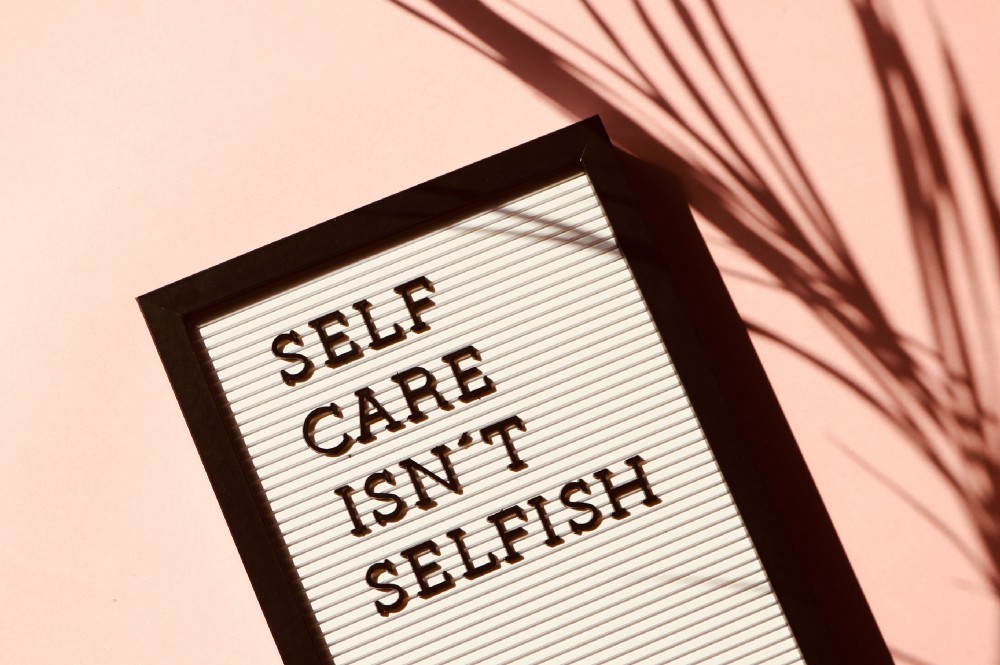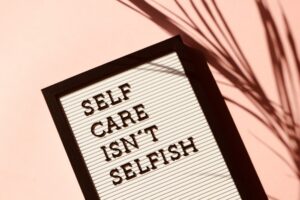Being a mental health provider is incredibly rewarding, but it isn’t easy — particularly during a global pandemic and a national anti-racist uprising. As mental health professionals, while we remain committed to supporting our clients in coping with their trauma, grief, and anxiety during this moment, we must also remain committed to ensuring our own wellness. It’s like being on an airplane: in order to fully support our clients, we must secure our own oxygen mask first.
I’ve spent the past month meeting with clients who are experiencing intense grief over the loss of loved ones due to the pandemic and even the trauma of this moment of racial unrest. As professionals, it’s easy to recognize all of the signs in our clients — anger, rage, despair, and grief. But as we prepare ourselves for an influx of clients experiencing race-based trauma over the coming weeks and months, I’m calling on all mental health professionals across the state to practice what we preach.
Whether you call it compassion-fatigue or vicarious trauma, in my line of work professionals are deeply affected by the despair and grief of their clients. We hold unconditional space for our clients to express their innermost thoughts and feelings. Our job is never easy, but during these times, it’s in high demand and deeply needed. That’s why now, more than ever, we must ensure we are acknowledging and addressing our own vulnerabilities as we tackle this unprecedented grief from the communities we serve.
As a race-based trauma expert, I know that communities of color have been hit hardest by both the COVID-19 crisis and the racism pandemic. Families are reeling, some losing more than one family member in a short period of time, all while dealing with the threat of contracting the virus themselves, and not being able to say their final goodbyes. Our communities are also experiencing the ongoing impact of urban trauma as a result of the constant barrage of police violence and intergenerational poverty that exacerbates the effects of the coronavirus. To respond appropriately, mental health providers, especially those serving communities of color, must remain attuned with the issues, prepared to undergo self-examination and learning, and commit to being well and resilient in order to provide optimal care for every client.
In my own practice, we are working with massive numbers of people experiencing grief. Hour after hour, we are managing the broken hearts of others, while recognizing that our own fears and anxieties are being exposed and are as vulnerable as our clients. Our work has increased, not only in numbers but the severity of the symptoms we are seeing in our clients.
Even now, as we serve clients whose reaction to COVID is coupled with the nation’s reaction to the racial crisis, we are most certainly experiencing a form of grief alongside them.
After providing them with some relief, we often take on that weight ourselves compounded by the gravity of our own issues and those of the rest of the people we serve.
Since social distancing officially started in our state, I and the clinicians in my practice have been working tirelessly to support our clients, who are primarily people of color, as they experience all these characteristics of grief.
What I’ve noticed in providers is an initial reaction to experiencing sadness for the clients and their plight. From there, providers are prone to deeply empathize with clients, internalizing their issues, and at times, inheriting them.
During this time, we have an obligation to be self-aware. We must be able to identify these tendencies, recognize our projections, and respond accordingly. I encourage each provider to develop coping strategies to help navigate this moment. Consult with colleagues, ensure you’re eating and sleeping well, meditate, take wellness breaks, and breathe.
So put that oxygen mask on, friends and colleagues, our clients rely on us to be well.






